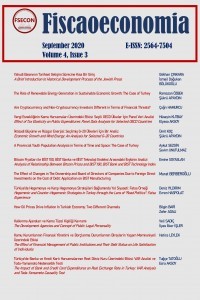
Fiscaoeconomia
Yazarlar: Tolga ÇELİK
Konular:Sosyal
DOI:10.25295/fsecon.2019.02.006
Anahtar Kelimeler:Food Regime Theory,Turkey,Agriculture,Agricultural Transformation
Özet: According to the food regime theory; In the last 150 years, it has been argued that the hegemonic forces of the era shaped the agricultural production, consumption and trade in the world. Food has maintained its importance as a source of life for centuries. However, the nature of foods has changed over time. The cheap food was used by the imperialist countries in the 1870s as a pressure mechanism on wages. From the Second World War until today, there have been changes in the use of agricultural raw materials, which are mainly used as food products. These changes have led the imperialist countries and their transnational corporations to legally occupy the territories of underdeveloped countries for the provision of cheap agricultural raw materials. Today, the importance attributed to independence in agricultural production carries more vital significance. Therefore, the main subject of the article is to examine Turkey’s changing agricultural structures in the context of food regime theory. In this regard, after examining the stages of the food regime theory, the transformation of Turkey’s agricultural system has been evaluated.